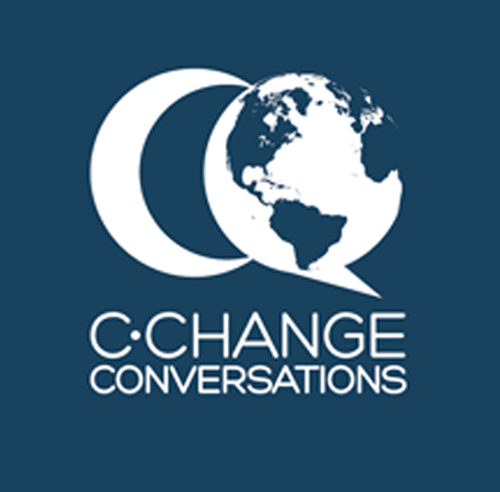By Kathleen Biggins, President and Founder
On January 6th, we were stunned as we watched an angry mob of citizens invade and desecrate the U.S. Capitol.
It was a startling culmination of years of divisiveness, misinformation, and demonization, stoked by pundits and politicians (on both sides). The fabric of our country is torn, and we will have to work hard to repair it.
At C-Change Conversations, we have worked to reduce the divide and help people understand that climate change is an issue that should bring us together rather than push us apart. Why? Because nature does not discern between a liberal or a conservative, or a farmer or a city dweller.
Nature is agnostic – and the changes in the atmosphere that mankind is triggering through greenhouse gas emissions will harm the basic natural systems that enable all of us to live on this earth: adequate water and food, safe temperatures and manageable numbers of natural disasters and diseases. Even though we feel divided, we are all in this together, and our actions with respect to our changing climate will either harm or protect everyone.
I don’t have the road map to help this country heal, but suggest two approaches that have helped C-Change reach across the divide:
- Respect for trusted sources of information – facts, “truth” if you will, that both groups can find credible. When we allow our pundits and politicians to manipulate facts and recreate their own truth, and then pass that incorrect or heavily slanted information around our blogosphere and our curated news sources until it is mirrored back at us in so many places it feels indisputably real, then we begin to live in separate universes – with no way to find common ground. That’s why C-Change uses non-partisan sources from respected scientific institutions like NASA and NOAA, institutions everyone normally depends on to keep themselves safe, to help people understand why they should take seriously the risks of climate change.
- Support and appreciation for “bridge builders,” people and institutions that are willing to bring people together across the divide and listen to others and remind them of our common humanity. The dysfunctional tribalism that was created by people and institutions who gain from it prevents many of us from remembering that all Americans want what is best for this country and for future generations. Since we started C-Change Conversations we have met many of these bridge builders, people who invite us to speak in their associations and communities even though they get hate mail or are verbally lambasted for daring to bring up the conversation of climate change. We are proud that we are asked to come in to help them build those bridges, and we are enheartened by the people we have met on our travels who have come to recognize climate change as a human issue, not a political one, and that they are necessary and welcome at the table.
I’ve seen these two approaches work very well. I have traveled to 30 states delivering the C-Change Conversations Primer to challenging audiences over the past three years, and my experience has left me hopeful. In every instance I was struck not only by the courage of our sponsors but also by the engagement from our audiences. A common refrain: “Thank you for helping me understand the science and inviting me in to be part of the solution.” And while not everyone agreed with us when they left, we always treated each other with courtesy and respect, and I truly believe held a mutual appreciation for the interaction we had shared.
Thank you for being part of our C-Change Conversations family and for helping to build those critically needed bridges.


